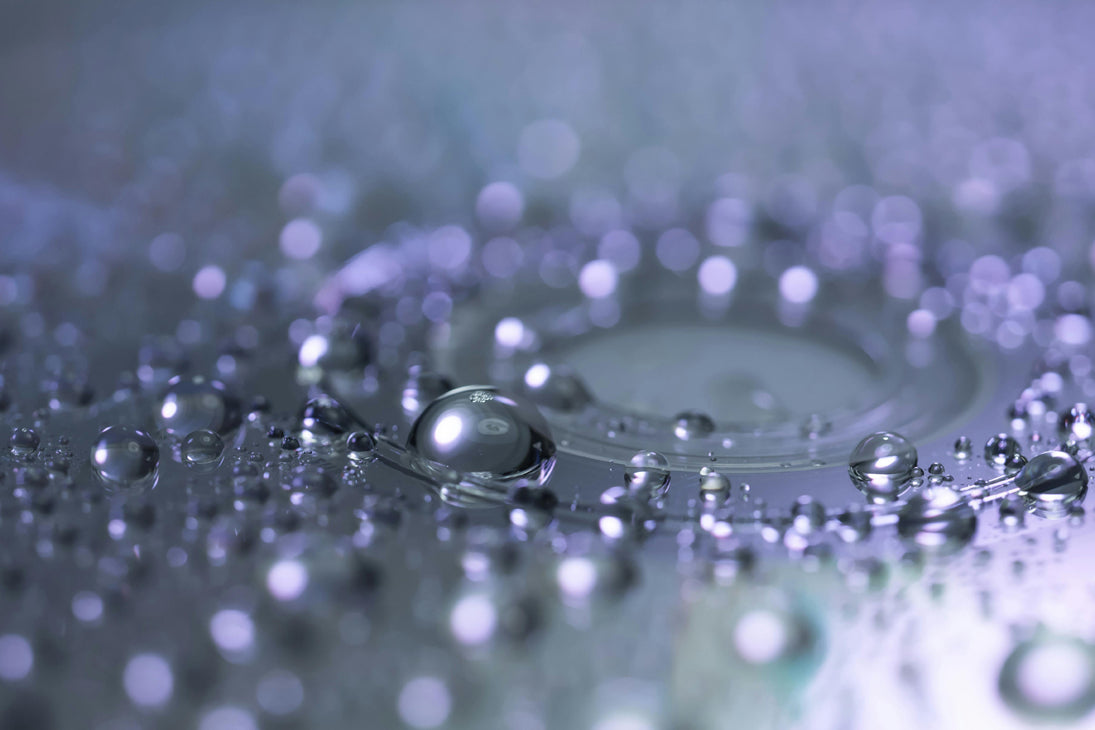The Basic Chemistry from your High School Years you Forgot About
White vinegar is an acid with a pH of 5. Baking soda however is a base or alkali with a pH of 8.1. What happens when we mix them together? They cancel each-other out. In other words the white vinegar becomes less acidic while the baking soda becomes less alkaline. The result? Water with some salt particles that won't do much against grime and oil at all.

Here at the lab we work making soap almost daily with one of the strongest alkalies - lye. Soap in its initial stage before it becomes the bar you shower with, is a stronger alkali with a pH at around 12-14, capable of burning the skin on contact. Sometimes accidents happen even to the most experienced chemists, and when we accidentally splash some of this mixture on our skin, the bottle we reach for to stop the burn is the one with the white vinegar label. Because an acid will always cancel out an alkali or at least substantially diminish its power.
The Fizz is Just a Show not a Powerful Cleansing Reaction
When we mix an acid with a base we get a cool reaction, fizz! The fizz is nothing more than carbon dioxide gas being released during the chemical reaction. (1, 2)
The reaction between baking soda and vinegar is actually a 2 step reaction, yielding carbon dioxide + water + sodium ion + acetate ion.
The acetic acid in the vinegar reacts with sodium bicarbonate to form carbonic acid. Because carbonic acid is unstable, it immediately falls apart into carbon dioxide and water as it decomposes. The bubbles you see from the reaction come from the carbon dioxide escaping the solution that is left. What’s left is a very diluted solution of sodium acetate (the remaining salt) but mostly water.
Remember that cool volcano eruption you made for your school's science fair? It's the same thing.
A similar reaction takes place when mixing citric acid (powder) + baking soda (powder) + water. I'm talking about Bath Bombs, those wonderfully scented balls that fizz when you drop them in your bathtub.
What you're actually cleaning with, or trying to, is a slightly salty water, and that's not a cleaner nor a powerful degreaser at all, despite what bloggers and green mamas might claim.
The Myths Dispelled
- White vinegar, baking soda and boiling water unclogged my sink
But did it really? Or you just ruined your pipes? The mixture of vinegar and baking soda plus boiling water* isn't powerful enough at all as we've established above. It isn't capable at cutting or removing grease, neither dissolves hair or food particles like lye does, nor is an anti-bacterial. If you can unclog your kitchen sink with this mixture chances are what is happening is the hot water is "melting" the fat and grease allowing the plug to "slide down" far enough until reaching the thicker portion of your drain and once there washing it away. But if you're using this method to unclog your kitchen sink, chances are you've ruined your pipes*.
If the plug is composed of hairs like the one found in your shower or bathroom sink, and if it isn't caught on the inside portion of your drain, and the mixture of vinegar, baking soda and boiling water* is washing it away, what is actually happening there is the bubbles from the fizzy reaction (carbon dioxide) is slightly moving the hairs enough for the next steps (boiling water) to flush it down far enough until it reaches the thicker portion of your drain. So save yourself the money on vinegar and baking soda and use a wire to unclog your shower or sink instead.
*The Uniform Plumbing Code (UPC) requires that the water temperature not be any hotter than 140 degrees Fahrenheit (60 Celsius) for PVC or 180 degrees Fahrenheit (82 Celsius) for ABS or it could distort/deform the drainage possibly leaving you with a bigger more expensive problem to deal with. (3)
- Vinegar and baking soda are powerful disinfectants
No they're not. White vinegar on its own and undiluted is capable of killing SOME bacteria in the kitchen, when applied hot at 130°F or 55°C. Otherwise undiluted and at room temperature is only good against Salmonella a bacteria that can live in your kitchen counter-top, but ineffective against everything else including E.coli a powerful bacteria living in both your kitchen and your bathrooms.
Baking soda pure, diluted, hot or at room temperature isn't capable of killing anything in the germs department either, but it's good as a fungicide. Mixed with a bit of water in a paste is good at removing some messes because of its light alkaline nature and the mechanical action (scrubbing or elbow grease) you would exercise, but if the intention is to wash messes, soap with a higher pH level might do a better job. (4, 5, 6)
Mixing the two (baking soda and vinegar) even at a hot temperature won't work as a disinfecting agent at all either, as the level of acidity which makes the vinegar effective as a disinfectant at hot temperatures, is cancelled out with the baking soda.
Other Myths Involving Vinegar and/or Baking Soda
- Vinegar and soap mixed together is a powerful cleanser
They're not. Vinegar isn't a cleaner at all. It's good at cutting down grease (lemon or lime are better as they're more acidic though), removing calcium buildup, and disinfecting - as long as it's applied hot and undiluted - but it's certainly not a cleaner. Soap on its own is a cleaner capable of removing quite a range of dirt. But when these two are combined we get a similar reaction as with vinegar and baking soda - they cancel each other out. Soap has a pH at around 9-10, vinegar has a pH of 5. In the case of this mixture something else happens, the soap becomes unsaponified. In other words, the oils used to make the soap partially separate. What you're left with is water with unsaponified oils floating as curdles, which won't clean anything at all.
- Vinegar and a detergent
A detergent isn't the same as soap. A detergent is a lab made synthetic cleaner known as a surfactant that behaves like a soap. They also are alkaline so they have a high pH. Adding vinegar to them reduces their power just like above.
- Peroxide and vinegar to disinfect every corner of your home
Unless you have a death wish, never ever mix hydrogen peroxide and vinegar together, especially around children and pets. This mixture creates Peracetic Acid which can corrode metal and the fumes can cause permanent lung damage. If you still feel the inclination to use them together, do not store the mixture as it has the tendency to explode if the proportions aren't correct. Instead have one spray bottle for vinegar and one spray bottle for hydrogen peroxide, spray vinegar first on the surface you want to disinfect make sure the room is well ventilated, and spray hydrogen peroxide on top, wipe and rinse. This mixture does work as a powerful disinfectant but it's best to purchase it already made, rather than using your home as a chemistry lab. The smell isn't pleasant at all. When Peracetic Acid dissolves in water, it disintegrates to hydrogen peroxide and acetic acid, which will fall apart to water, oxygen and carbon dioxide. (7)
Green Cleaning that Works
If what you want is to disinfect without harsh chemicals, then pressurized vapor should be your goal. There are many nifty household appliances available. Add 1 part of vinegar to 2 parts of water to keep them free of calcium deposits and to disinfect your surfaces.
Hot undiluted white vinegar or peroxide work at killing some common bacteria, but are inefficient at removing dirt. So first clean with some soap and then use either NOT BOTH to disinfect. Bleach, is one of the most powerful disinfectants however it isn't very earth friendly plus it's quite harmful.
Soap is still at the top of the list in the cleaners department, and true soap is biodegradable.
If you want to remove calcium deposits from your shower and if you have time, use white vinegar.
Use baking soda for cleaning pots and pants, but don't use it on aluminium as it might corrode it.
As for your drains, either invest in a good wire drain cleaner, much better at keeping the world free of harmful chemicals and your pipes intact, or call the plumber.






